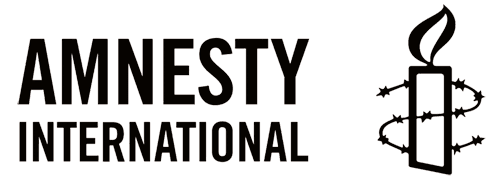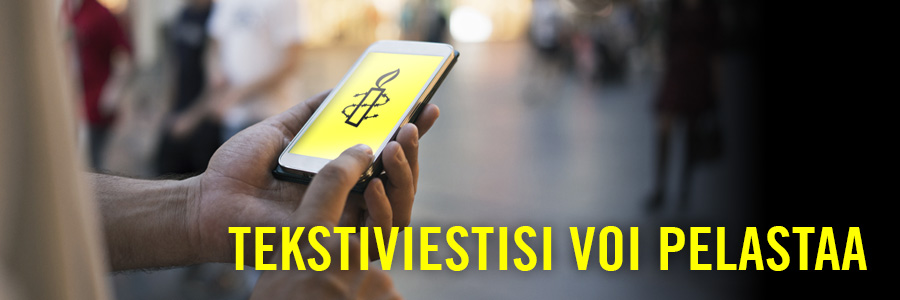Dear Mr Gholamhossein Mohseni Ejei,
Swedish-Iranian academic Ahmadreza Djalali, arbitrarily detained in Tehran’s Evin prison, is at grave risk of execution. He has heart arrhythmia, anaemia and high blood pressure, for which he has been denied timely and adequate access to health care. His health deteriorated further following his hunger strike from 26 June to 4 July 2024, which, according to his wife Vida Mehrannia, he underwent in protest at his arbitrary detention and at being “left behind” following a prisoner exchange deal between Iran and Sweden on 15 June. She expressed her fear about his fate following the swap, which resulted in the release of former Iranian official Hamid Nouri, sentenced to life imprisonment by a Swedish court in relation to his role in the 1988 prison massacres in Iran, in exchange for two Swedish nationals.
Ahmadreza Djalali was arrested in Tehran in April 2016 and sentenced to death for “corruption on earth” (efsad-e fel-arz) in October 2017 after a grossly unfair trial before a Revolutionary Court which relied primarily on “confessions” that Ahmadreza Djalali said were obtained under torture and other ill-treatment while he was held in prolonged solitary confinement and denied access to a lawyer. Amnesty International has repeatedly held that “corruption on earth” fails to meet requirements for clarity and precision needed in criminal law. On 9 December 2018, his lawyers learned that the Supreme Court had upheld his death sentence without granting them the opportunity to file defence submissions. Since late December 2018, Ahmadreza Djalali’s forced “confessions” have repeatedly aired on state TV. In May 2022, Ahmadreza Djalali’s lawyers filed a request for judicial review to the Supreme Court and, separately, an appeal to the head of judiciary under Article 477 the Code of Criminal Procedure to order a review of the case; no responses have been received over two years later. Ahmadreza Djalali’s detention is rendered arbitrary due to the gravity of the violations of his fair trial rights, including to the presumption of innocence; to not self-incriminate; to a trial before an independent, competent and impartial tribunal without undue delay; to access a lawyer from the time of arrest; to an adequate defence; to be protected from torture and other ill-treatment and to meaningfully challenge the legality of his detention.
I ask you to immediately stop any plans to execute Ahmadreza Djalali, quash his conviction and death sentence and immediately release him as his detention is rendered arbitrary due to the severe non-observance of his fair trial rights. Pending his release, Ahmadreza Djalali must be provided with adequate medical care and protected from further torture and other ill-treatment. Prompt, independent, effective and impartial investigations into those suspected of ordering, committing, aiding or abetting unlawful acts against him must be conducted and those suspected of such offences brought to justice in fair trials. I also call on you to establish an official moratorium on executions with a view to abolishing the death penalty.
Taustatietoa
The circumstances of Hamid Nouri’s pardon by the Swedish government and his return to Iran on 15 June 2024 confirm Amnesty International’s earlier concerns that the Iranian authorities have been holding Swedish nationals hostage to swap them for Hamid Nouri. Swedish nationals Johan Floderus and Saeed Azizi – also an Iranian national, returned home on 15 June 2024 after being subjected to a litany of human rights violations in Iran. Amnesty International previously held that the Swedish government’s decision to release Hamid Nouri contributes to the crisis of impunity in Iran and also emboldens the Iranian authorities to commit further crimes under international law, including hostage-taking, without fear of consequences, undermines the right to justice and reparation for survivors and victims’ families, and raises concerns about the commitment of Sweden’s government to its obligations under international law.
Amnesty International has also previously warned that Iranian authorities held Ahmadreza Djalali hostage and threatened to execute him to compel third parties to swap him for former Iranian officials convicted and/or on trial abroad as well as to refrain from future prosecutions of Iranian officials. On 19 December 2023, the Court of Appeal Svea Hovrätt upheld his conviction and life sentence, imposed by the Stockholm District Court on 14 July 2022. The next day, on 20 December 2023, Iranian state media aired a propaganda video with Ahmadreza Djalali’s forced “confessions”, which included being a spy for Israel. In a letter written from prison in August 2017, Ahmadreza Djalali said that during this period he was subjected to torture and other ill-treatment in order to force him to “confess” to being a spy, including threats to execute him, kill or otherwise harm his children, who live in Sweden, and his mother, who lived in Iran and died in 2021. In the same letter from August 2017, Ahmadreza Djalali wrote that he was held solely because of his refusal to use his academic ties in European institutions to spy for the Iranian authorities. The 20 December 2023 propaganda video included Habib Chaab’s forced “confessions”, a Swedish-Iranian national arbitrary executed in secret on 6 May 2023 by the authorities.
Ahmadreza Djalali is a medical doctor and academic who was living in Sweden and was also a visiting professor in disaster medicine at the Vrije Universiteit Brussels. He was arbitrarily arrested on 26 April 2016 while on a business trip to Iran. He was held in Evin prison for seven months in section 209, which is under the control of the Ministry of Intelligence, which includes three months in prolonged solitary confinement, without access to a lawyer. In November 2017, the UN Working Group on Arbitrary Detention called on Iran to release Ahmadreza Djalali immediately and accord him an enforceable right to compensation and other reparations. They found that his right to a fair trial had been violated so gravely “as to give Mr Djalali’s deprivation of liberty an arbitrary character”. From late November 2020 to early April 2021, Ministry of Intelligence agents tortured and otherwise ill-treated Ahmadreza Djalali while he was held incommunicado again in prolonged solitary confinement in section 209 of Evin prison. During this time, agents from the Ministry of Intelligence kept a bright light on in his cell 24 hours a day, which he said caused him great mental distress, and forced him to sleep on the floor on a thin blanket for over five months. Throughout his arbitrary detention, Iranian authorities denied him access to timely and adequate health care. On 3 July 2024, while on hunger strike, he was briefly transferred to Evin prison’s medical clinic, after being unwell with a weak pulse, and was administered IV fluids.
In the aftermath of the September to December 2022 “Woman Life Freedom” uprising, the Iranian authorities have intensified their use of the death penalty to instil fear among the population and tighten their grip on power. In 2023, Iranian authorities carried out at least 853 executions, and in 2024, they have continued executing people and carried out at least 274 executions as at 30 June 2024, according to the Abdorrahman Boroumand Centre for Human Rights in Iran. Amnesty International opposes the death penalty in all cases without exception regardless of the nature of the crime, the characteristics of the offender, or the method used by the state to kill the prisoner. The death penalty is a violation of the right to life and the ultimate cruel, inhuman and degrading punishment.


